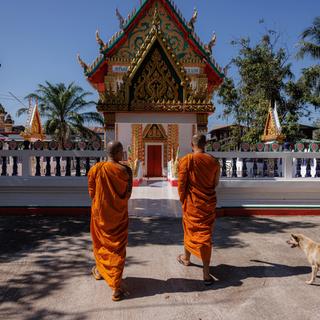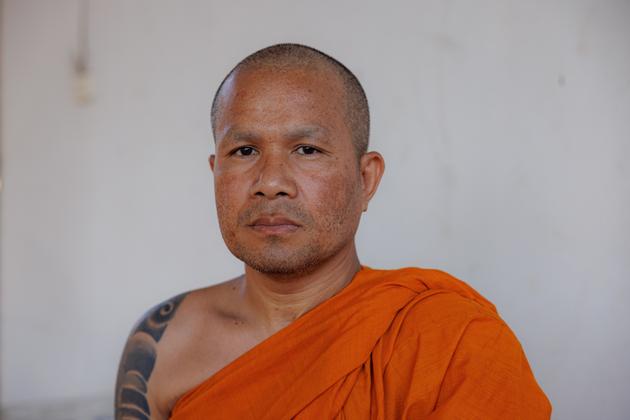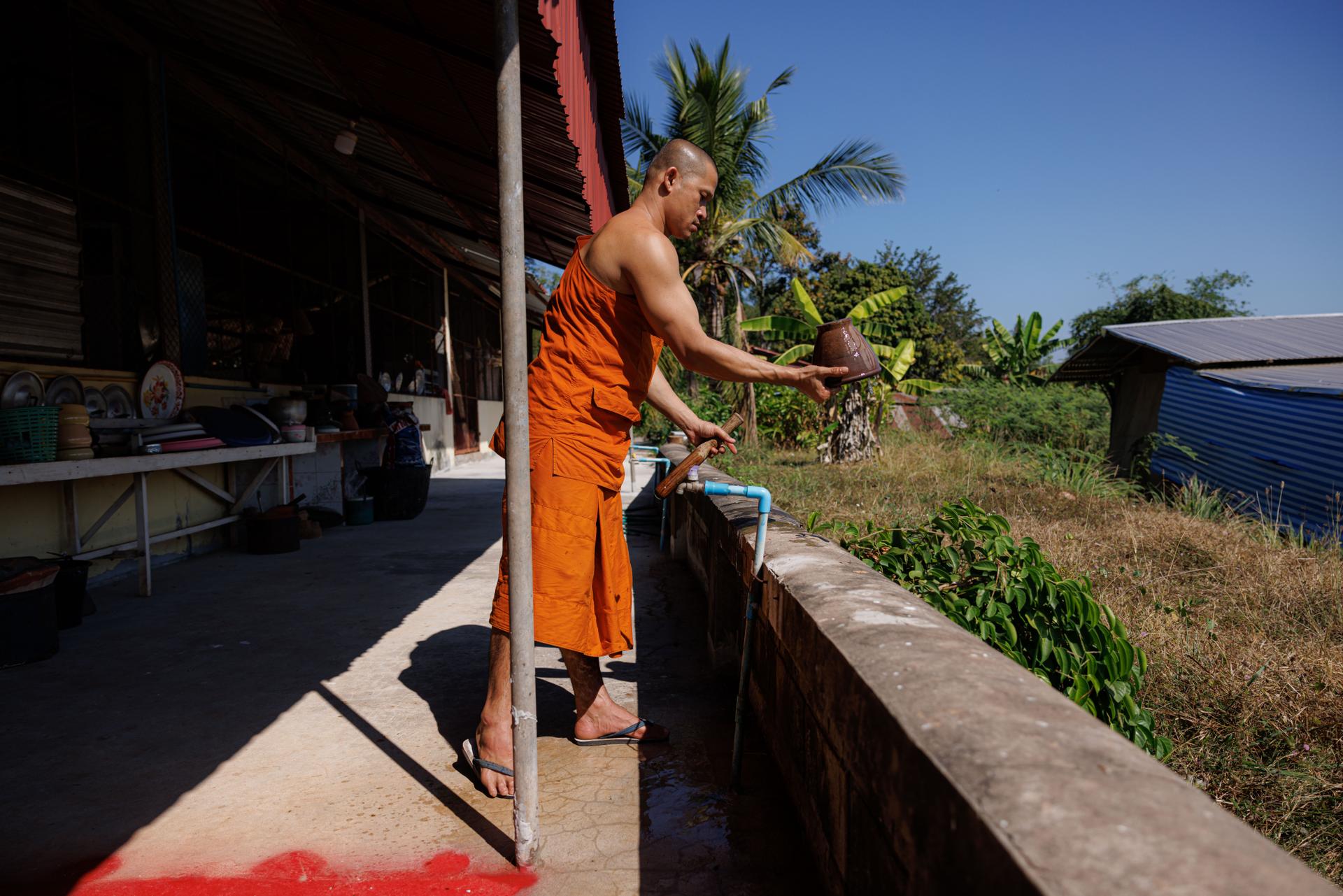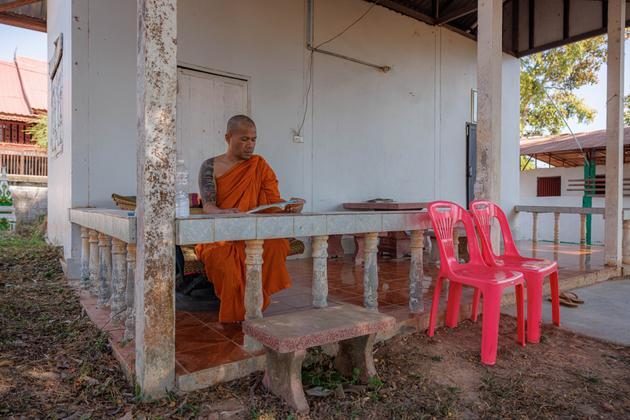


'I thought we wouldn't make it': In north-east Thailand, former Hamas hostages share their stories
Your storiesIn the impoverished region of Isan, three former farm workers, who were abducted by Hamas on October 7 and released 48 days later in exchange for Palestinian prisoners, share the story of their captivity. Two of them temporarily became monks to thank Buddha.
Dressed in his orange monk's habit, Bunthom Phankong clasped his hands together and spoke softly. He took holy orders on December 11 for one week. Buddhist men in Thailand are obliged to do this at least once in their lives, and what situation could have made him more inclined to do this than his experience as a former hostage of Hamas in Gaza?
"I owe it to my people, it's to ward off bad luck," he told Le Monde on Friday, December 15, in a small temple some 50 kilometers from Udon Thani, a town in Thailand's northeastern Isan region. Phankong, 45, was lucky compared to the fate of dozens of his compatriots employed in Israel. Thirty-nine Thais were killed during the Hamas attack of October 7 and eight are still being held by the Islamist group.



The former hostage spent 48 days in detention in what he described as a second-floor hospital room, along with six other Thai hostages. He doesn't know which hospital. The guards accompanied them to the toilet. It was forbidden to look out of the windows.
"We couldn't see anyone, but we could hear cries for help, children screaming or crying," said Phankong. He asked one of the guards to reassure his 85-year-old mother in Thailand. To no avail. "I thought they would spare us because otherwise they wouldn't have fed us," he said. The hostages ate once a day – he lost eight kilos. A nurse visited them once a week. On two occasions, the bombardments were intense.
Hidden nest eggs
The little red-and-green temple, with its tapering naga (snake) beaks characteristic of Thai wat (monasteries), gleamed with all its gilding. Under the tall trees, dogs jumped from one patch of shade to another. There are just three monks, including Phankong, in this depopulated village in Isan, the kingdom's poorest region. In this struggling rural world, many try to escape the cycle of debt by working in Bangkok or abroad.
Phankong had been working in Israel for six years, within the framework of intergovernmental agreements governing the use of Thai farm workers by the Israeli government. Applicants only have to pay for the plane ticket, which costs €2,000. After his recruitment was approved, Crédit Agricole granted him a loan, which he repaid, he said, in two years.
He was lucky enough to meet 35-year-old Nutthawaree Munkan in Israel, a unique case as one of the few Thai women employed there since 2019, after five years on the waiting list. "Here, we hardly earn more than 300 baht [€8] a day; in Israel, the salary can reach 2,000 baht daily," she told us, in her village near Khon Kaen, another town in Isan. She shares a bungalow with her mother and the two children she has from a previous marriage. The two women have raised them through a series of odd jobs. In Israel, she and Phankong worked nights packing yams in the Mivtahim moshav (agricultural cooperative). Their contract was due to end in a year. They had opened a joint account.
You have 65% of this article left to read. The rest is for subscribers only.
